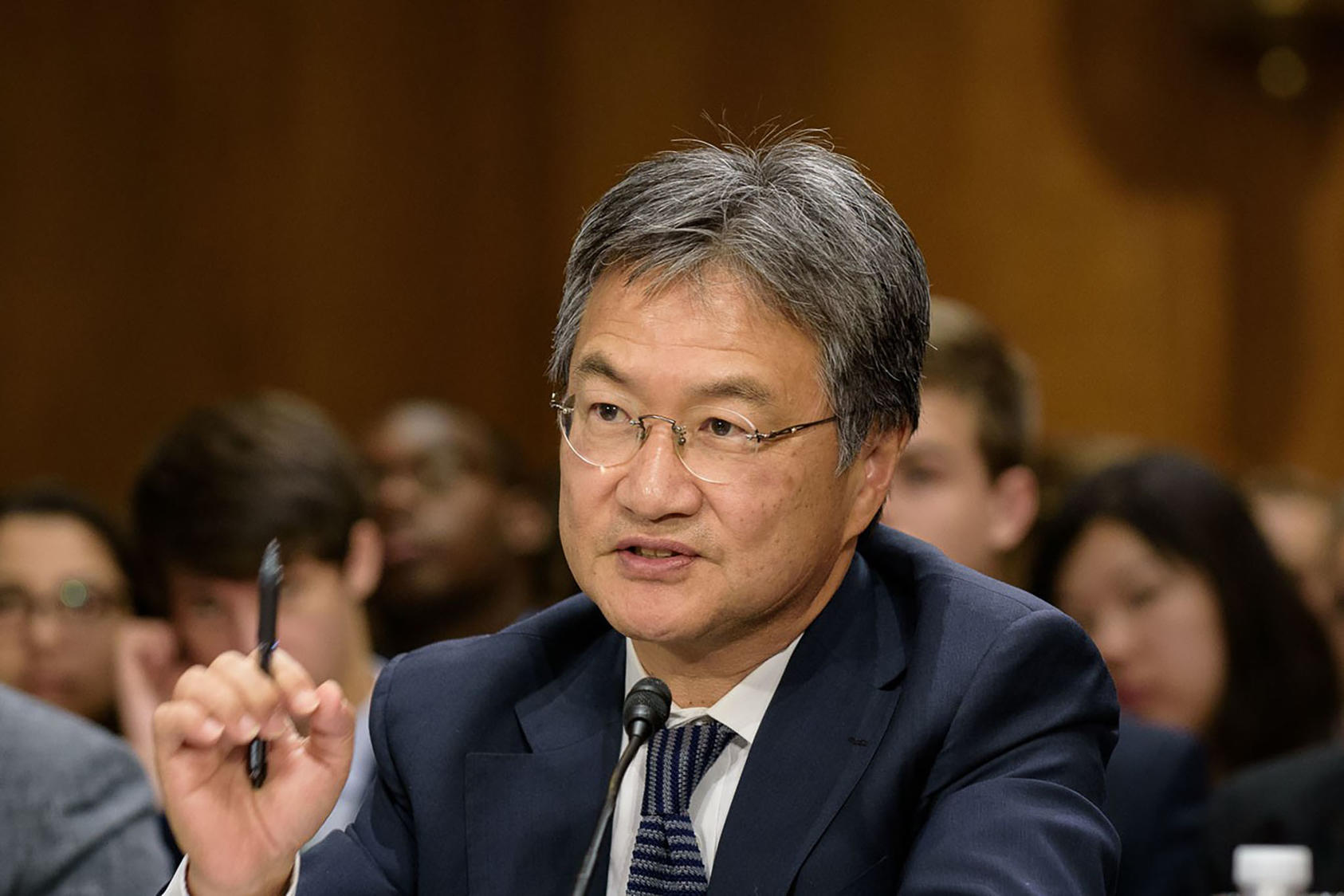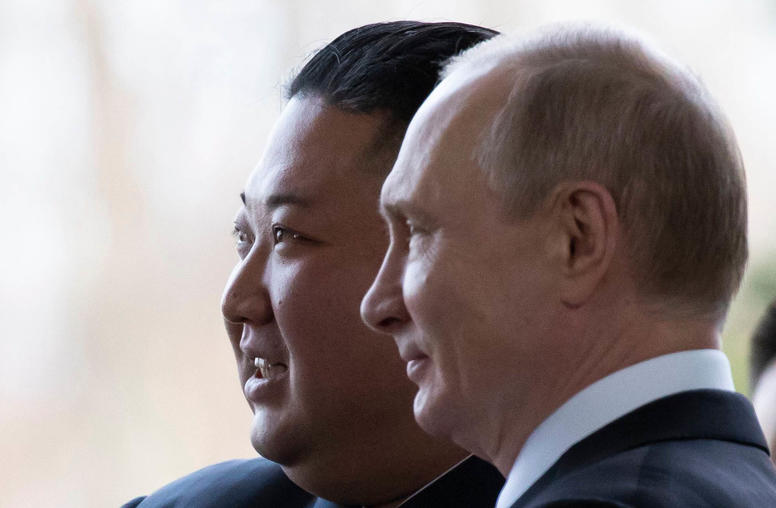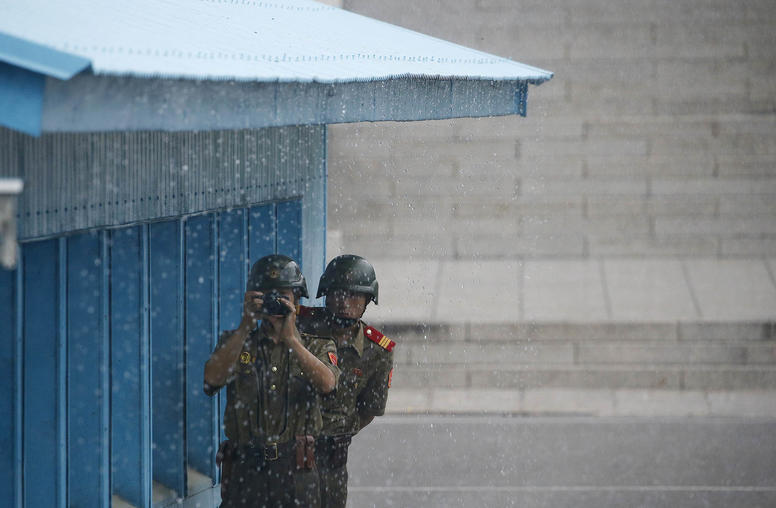Next Steps on U.S. Policy Toward North Korea
Testimony before the Senate Foreign Relations Subcommittee on East Asia, The Pacific, and International Cybersecurity Policy
A week before the historic summit with North Korea, Ambassador Joseph Yun, a senior advisor to the Asia Center at the U.S. Institute of Peace, testified on Capitol Hill on the next steps for U.S. policy toward North Korea. As special envoy on North Korea from 2016 to 2018, Ambassador Yun led the State Department’s efforts to align regional powers behind a united policy to denuclearize North Korea. He was instrumental in reopening the “New York channel,” a direct communication line with officials from Pyongyang. The full transcript of his remarks can be found below.

Remarks as Prepared
Subcommittee Chairman Gardner, Ranking Member Markey and members of the Subcommittee, thank you for the opportunity to testify this morning on “Next Steps on U.S. Policy Toward North Korea.” I am a Senior Advisor at the United States Institute of Peace, although the views expressed here are my own. USIP was established by Congress over 30 years ago as an independent, national institute to prevent and resolve violent conflicts abroad, in accordance with U.S. national interests and values.
Achieving a substantive and mutually satisfactory agreement in the planned June 12 U.S.-North Korea summit is a particularly complex challenge, as the two sides start from positions that have little in common. At the most obvious level, they are focused on sharply different outcomes. The U.S. under President Donald Trump wants immediate or at least swift denuclearization of North Korea, while DPRK leader Kim Jong Un is focused on the survival of his regime, beginning with recognition of his country as a legitimate state, followed by an easing of economic sanctions. That mismatch has remained more or less consistent and has stymied any agreement since the first round of bilateral denuclearization negotiations in early 1990s.
However, the stakes have grown far higher since last September when the North Koreans successfully tested a thermo-nuclear device with a yield approximately fifteen times the blast Hiroshima in 1945, followed just two months later by the launch of their Hwasong 15 ICBM, capable of reaching virtually anywhere in the United States. Simultaneously, President Trump’s “maximum pressure” campaign has begun to squeeze the North Korean economy more effectively than past sanctions and his warnings of an American military response “like the world has never known” have rattled both China and South Korea to urge Kim to decelerate.
As a result, the parties’ divergence of goals is now matched by an equally differing view of their relative negotiating power. President Trump has reasons to believe that he is the one holding the cards—that Kim has been so punished by the effects of the maximum pressure that he is ready to bargain away his nuclear weapons. While South Korean President Moon Jae-in is adamant that Kim Jong Un is serious about denuclearization, it is clear that, as the leader of a demonstrated nuclear weapons possessing state, Kim also believes he enters the talks from a position of strength—otherwise, why would the U.S. president agree to meet him one-on-one, a goal both Kim’s father and grandfather were never able to achieve?
Given this gap, what should the U.S. realistically aim for in the summit?
North Korea will likely not agree to what National Security Advisor John Bolton has in mind: immediately packing away all its nuclear arsenal and equipment and shipping them to Oakridge. This much has become clear with the most recent high-level engagement between the President, Secretary of State Mike Pompeo and North Korean Vice Chairman Kim Yong-Chul. Even President Trump recognized that this demand was unrealistic, as he opened the door to phased denuclearization when he told the press after his meeting with Kim Yong-Chul on June 1 that the negotiations with the North Korean would be a “process,” and that there could be several summit meetings with Kim Jong Un and that the first meeting might be something of a “getting-to-know-you” session.
Still, even in the first summit, the Administration should demand immediate concrete steps to support Kim Jong Un’s assertion that he is indeed looking for a different relationship with the United States, South Korea and the international community.
On the denuclearization side, there are easy, immediate deliverables, including memorializing North Korea’s current self-imposed moratoriums on nuclear and ballistic missile testing and opening the Yongbyun nuclear facilities for IAEA inspection and monitoring. A much more difficult, but nevertheless vital initial step is to provide a “true” declaration and accounting of all North Korean nuclear sites and fissile material. Pyongyang has adamantly resisted giving such an accounting in the past, a key reason for the collapse of the two previous agreements: the Agreed Framework and the Six Party Talks. These first-stage actions, accompanied by an agreement on full verification, will test the seriousness of Kim’s claim that he is seeking a different type of relationship with the United States, as well as President Moon’s claim that the U.S. should believe it.
Beyond the immediate steps, the negotiation must produce a clear timeline for the ultimate goal: the disablement and dismantlement of all nuclear and North Korean ICBM facilities, material, and devices. If Kim agrees to a swift timeline—say by 2020–the cadres of skeptics in Washington, Seoul and Tokyo will be silenced, although they will continue to assert, rightly, that implementation is everything.
The other side of the ledger is what Kim gets in return. Pyongyang has developed nuclear weapons and ballistic missiles to ensure regime survival. To reach a clear outcome on denuclearization, there should be a corresponding clarity on security guarantees. Diplomatically, both the DPRK and the U.S. should show their serious commitment to normalizing relations by agreeing to an “end-of-war” statement and opening of liaison offices in Washington and Pyongyang. Declaring that the United States does not have “hostile intent” and will begin normalization and peace treaty negotiations is equally needed as a security guarantee. Still, better relations with North Korea, even security guarantees such as no-first-strike, cannot come at the expense of degrading our alliances in the region, especially the U.S.-ROK and U.S.-Japan alliances.
Any concrete steps by North Korea on denuclearization should be accompanied by economic measures. Early confidence building steps could include humanitarian assistance, if not from the U.S. then through South Korea and the international community. On sanctions—both U.S. and those imposed through the United Nations Security Council resolutions—any relief should be based on complete dismantlement of the nuclear weapons, material, and program, as the Administration has stated repeatedly.
In the remaining time the U.S. has before the summit, U.S. diplomats, led by Secretary Pompeo, should build on the gains made over the past six months (North Korea’s moratorium on nuclear and ballistic missile testing, the apparent disablement of the Punggye-ri testing facilities, and the freeing of the three American prisoners) to reach an agreement on an agenda that addresses both leaders’ aspirations and promises enough concrete deliverables to convince the American public and the international community that the United States and North Korea are taking serious steps toward denuclearization of North Korea.
Thank you for your continued focus and attention to this critical national security issue. I look forward to answering your questions.
The view expressed in this testimony are those of the author and not the U.S. Institute of Peace.



